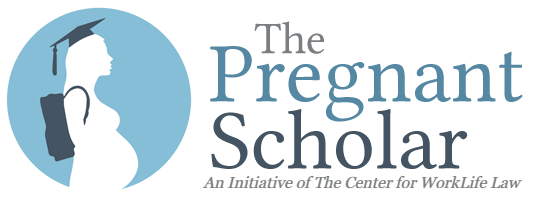Students and non-employee (or trainee) postdocs performing research are entitled to receive leave, without penalty, when it is medically necessary due to pregnancy, childbirth, termination, false pregnancy, or related conditions and recovery. Because federal law requires that the student/trainee must be permitted to return in the same status held prior to taking leave, professors should make every attempt to preserve the student’s research for her return.
Employee researchers, including students and postdocs who are employees, may be entitled to job-protected paid or unpaid maternity and/or disability leave. The length of the leave, and whether the leave is paid or unpaid, will vary based on the particular position. As a minimum, Title IX regulations require that employees are provided with leave for a “reasonable period of time,” after which the woman will be reinstated to the same status, “without decrease in rate of compensation or loss of promotional opportunities, or any other right or privilege of employment.” Under the FMLA, eligible employees are entitled to up to 12 weeks of job-protected leave.
Requiring that a researcher cut her pregnancy-related leave short, or making statements that imply such a requirement exists, constitutes discrimination.
See here for more information on employment issues.






